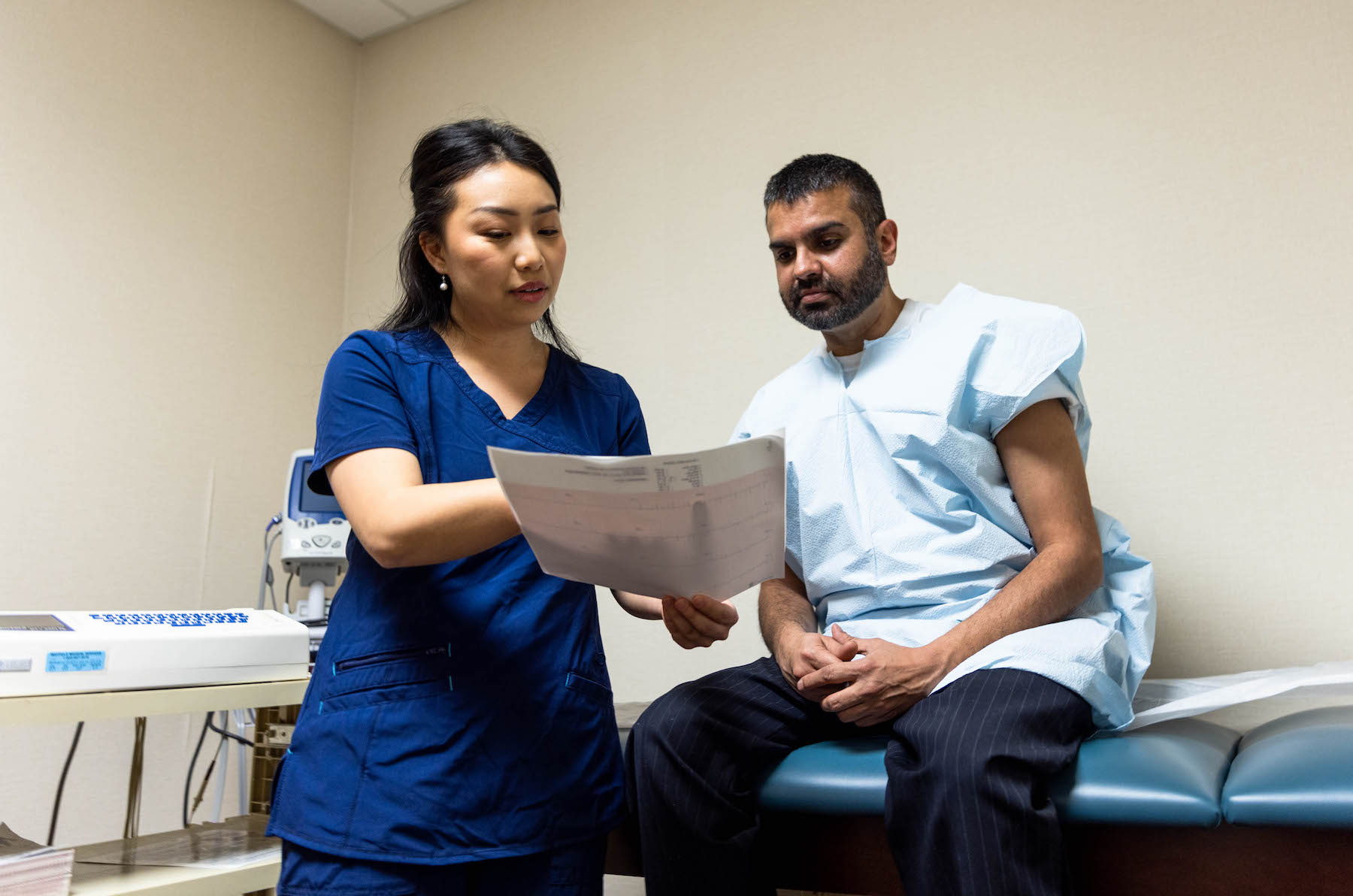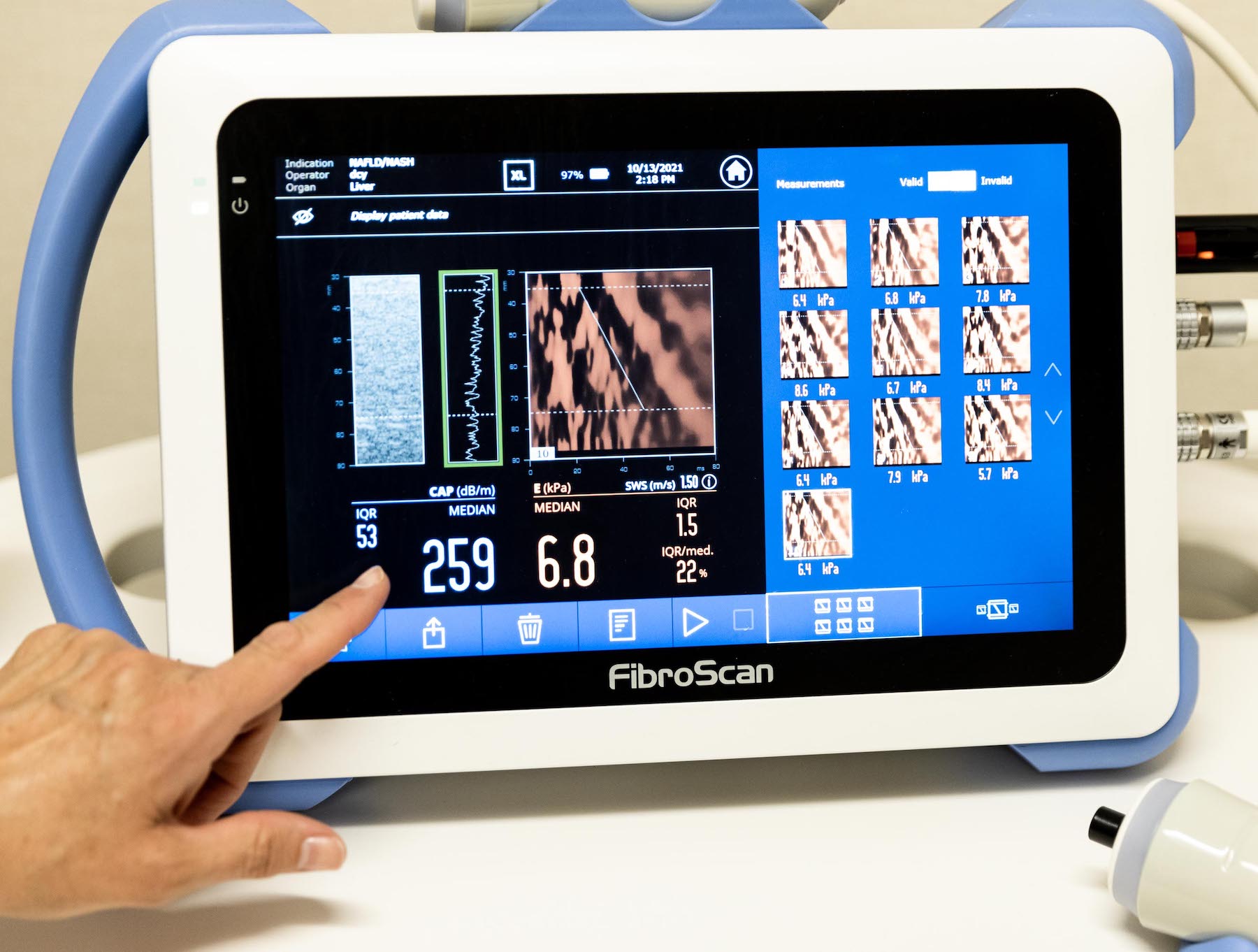What is Ulcerative Colitis?
Ulcerative Colitis (UC) is an inflammatory bowel disease (IBD) that causes inflammation and ulcers in your colon. It can lead to blood in your stool, abdominal pain, diarrhea, fatigue, and dehydration. Ulcerative Colitis usually starts in the rectum, moves higher up in the colon, and even affects parts of the colon. It is a condition that can cause persistent diarrhea, rectal bleeding, painful urgent bowel movements, and severe abdominal cramping. Ulcerative Colitis is seen more often than Crohn’s disease and affects about 1.3% of the population.
There are several FDA approved treatments and over the counter medications available to help patients manage the symptoms. While many affective treatments are available, clinical trials may still be your best option if other medications prove ineffective, or if you lack insurance options or the ability to pay for your medications.
Risk Factors
- Diet
- Stress
- Age
- Race or Ethnicity
- Genetics
Symptoms
- Diarrhea, often with blood
- Severe Abdominal Pain
- Rectal Pain
- Rectal Bleeding
- Urgent, painful bowel movements
- Weight Loss
- Fatigue
- Fever
Treatments
- Maintain a healthy diet
- Manage stress
- Immune System Suppressors
- Biologics
- 5-Aminosolicylic Acid
- Corticosteroids
- Surgery
Managing Ulcerative Colitis
While the exact cause of Ulcerative Colitis is unknown, there are ways to be proactive once you’ve received a UC diagnosis. While there is no cure for UC, you can prevent complications and manage symptoms with treatment and lifestyle modifications.
- – Hydrate regularly
- – Eat a balanced diet and limit dairy products
- – Maintain a healthy weight
- – Exercise
- – Manage stress


FAQs about Ulcerative Colitis
Frequently Asked Questions
What is the difference between Crohn’s Disease and Ulcerative Colitis?
Crohn’s disease manifests as patches of inflammation in the intestine. In patients with Ulcerative Colitis, the entire colon becomes inflamed. Sometimes it is difficult to distinguish which condition it is, and many patients often receive conflicting diagnoses depending on how severe their flare up is at the time of examination.
How does KCRI diagnose Ulcerative Colitis?
Because of the nature of the condition, KCRI is typically only able to diagnose patients during a “flare up.” These can come sporadically, but can also happen:
- Under stress
- During the holiday season
- Alongside family stress
- With changes in eating habits
Most commonly, we see stool frequencies pick up (5 to 6 bowel movements a day) that often show signs of blood. Severe flare ups can make you very ill, cause dehydration, and other complications. Sometimes, patients are not diagnosed with UC until they experience a fissure (tear) or fissula, a painful infection that causes a hole through which stool can pass.
How do I treat Ulcerative Colitis?
There are a number of medications that exist for managing UC, but they can render others ineffective, which may not be a desirable way to manage your overall health. Steroids may be prescribed initially, but cannot be used long term. Another option, “biologics,” is possible, but can be costly and can sometimes require infusions.
Many clinical trials for UC treatments look for oral medications that come with fewer side effects. However, similar to Crohn’s disease, patients seeking UC clinical trials must be experiencing a certain stage of the condition and must be on or off of specific medications in order to be eligible.
KCRI is passionate about providing a consultative approach to your UC treatments and can help make recommendations for how to best manage your condition per your unique needs and medical history.
Don't see the study you're looking for?
Those that Participate:
- See a board-certified physician at no cost
- Have access to possible new treatment options before the general public
- May be compensated for time and travel
We are continually getting new research studies for all types of conditions. Submit your information today to be contacted for upcoming research opportunities.




